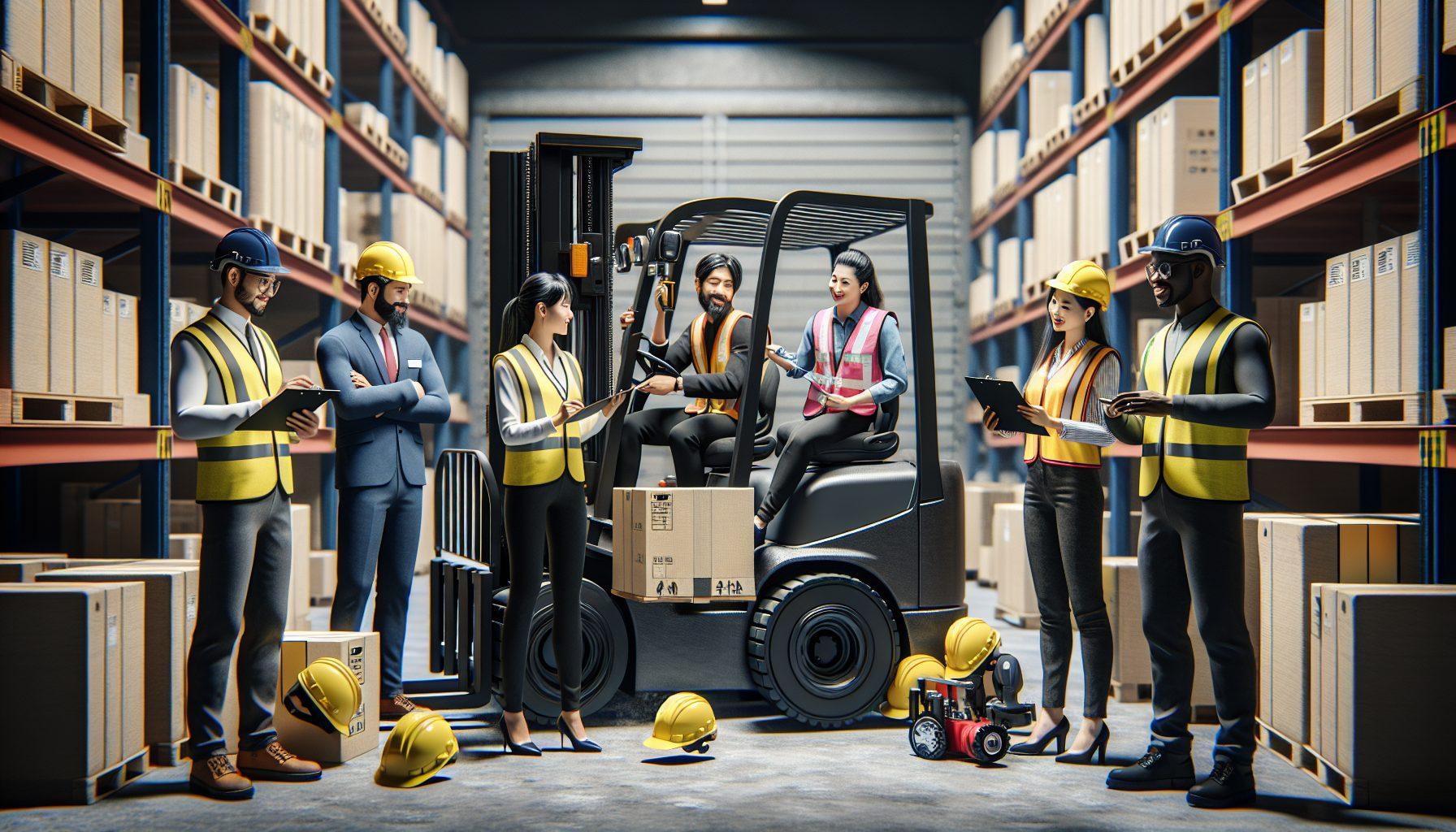Warehouse safety is a critical aspect of running an efficient and productive operation. One essential aspect of maintaining a safe warehouse environment is ensuring that forklift operators receive regular safety training. Forklifts are powerful machines that can cause serious accidents and injuries if not operated correctly. In this article, we will explore the importance of regular forklift safety training and how it can benefit both warehouse operators and employees.
The Role of Forklift Safety Training
Forklift safety training is designed to educate operators on the proper operation, maintenance, and safety protocols associated with forklifts. The training covers various topics such as forklift operation techniques, load handling, steering, inspection, and general safety guidelines. It aims to equip operators with the knowledge and skills necessary to operate forklifts safely and efficiently.
Regular forklift safety training is essential for several reasons:
- Preventing Accidents: Forklift accidents can result in severe injuries or even fatalities. By providing regular safety training, companies can reduce the risk of accidents by ensuring that operators understand and follow proper safety protocols. Training covers topics such as speed limits, blind spots, load stability, and safe maneuvering, which are crucial to preventing accidents in the warehouse.
- Reducing Product and Property Damage: Improper forklift operation can lead to damage to products, materials, and property. Training helps operators develop the necessary skills to handle loads properly, avoid collisions, and minimize accidental damage. By investing in regular safety training, companies can protect their inventory, equipment, and facilities from unnecessary damage.
- Increasing Efficiency: Well-trained forklift operators are more efficient in their tasks. They can operate the equipment more confidently and effectively, leading to increased productivity and throughput. Safety training also emphasizes the importance of proper load placement and handling techniques, resulting in reduced loading and unloading times.
- Compliance with Regulations: Forklift safety training is not only beneficial for warehouse operations but also a legal requirement in many jurisdictions. Regulatory bodies such as OSHA (Occupational Safety and Health Administration) mandate that employers provide proper training to forklift operators. By regularly conducting safety training, companies remain compliant with regulations and avoid potential penalties or legal issues.
It is not enough to provide initial forklift training when an operator is hired. Regular refresher training and ongoing educational programs are necessary to ensure that operators remain up to date with the latest safety guidelines and best practices. These training sessions can be conducted in-person or through online platforms, depending on the resources and preferences of the company.
The Benefits of Regular Forklift Safety Training
Implementing regular forklift safety training programs can offer several benefits to both the company and its employees:
- Improved Safety Culture: By prioritizing regular safety training, companies foster a culture of safety among their employees. When everyone is aware of the potential risks and is trained to mitigate them, there is a higher level of accountability and vigilance when it comes to safety protocols. This results in a safer work environment for everyone.
- Reduced Work-related Injuries: Forklift accidents can result in serious injuries and even fatalities. By ensuring that operators receive regular safety training, companies help reduce the risk of accidents and injuries in the workplace. This not only benefits the employees but also mitigates potential costs associated with medical treatments, insurance claims, and downtime resulting from accidents.
- Enhanced Employee Morale: When employees feel safe in their work environment, their morale and job satisfaction increase. Regular forklift safety training shows that the company values the well-being of its employees, which can positively impact employee engagement and retention.
- Cost Savings: Investing in regular forklift safety training can result in long-term cost savings for the company. By preventing accidents, injuries, and property damage, companies can avoid costly legal battles, insurance claims, and repairs/replacements. Additionally, the increased efficiency and productivity resulting from well-trained operators can contribute to overall cost-effectiveness.
At HCO Innovations, we understand the importance of forklift safety training and its impact on warehouse operations. We offer comprehensive warehouse optimization solutions, including safety evaluation and training services. Our team of experts can assess your current safety protocols, identify potential hazards, and provide customized training programs to enhance safety and productivity in your warehouse. Contact us today to learn more about how we can help you optimize your warehouse operations.

